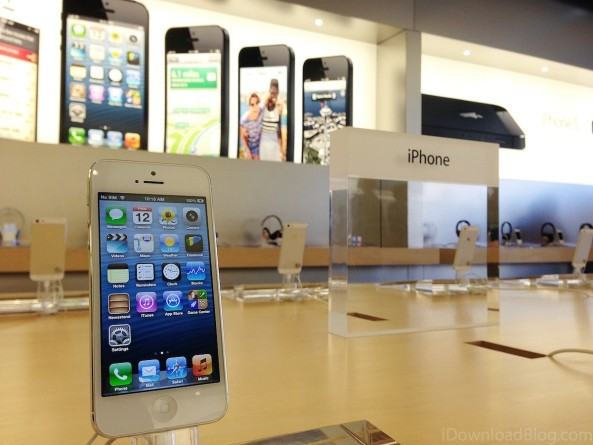Quit your worrying. In short, that’s what one analyst Wednesday is telling nervous observers concerned over a report that Apple reduced orders for the iPhone 5 during the March quarter.
Instead, the reduction in orders could signal a more efficient supply stream and greater profit for investors.
As we reported earlier this week, Citi’s Glen Yeung kicked off the hand-wringing by downgrading Apple stock to ‘Neutral’ from ‘Buy’, citing increased competition and the lower iPhone 5 orders. Other Wall Street analysts piled on, cutting their price targets for shares of the iPhone maker. Now J P Morgan analyst Mark Moskowitz is the latest to say the reduced orders may not mean lower demand for the new Apple handset…Moskowitz believes (via Cnet) Apple is reducing orders for iPhone 5 components because its supply chain has caught up with an early shortage of devices. That shortage caused the company to press suppliers to up production.
“Downshifting from ‘white hot’ order activity does not mean the world is ending,” the analyst said. Rather, what he terms “supply chain adjustments” could simply suggest “manufacturing yields on [the] iPhone 5 have improved, which means Apple’s gross margin profile could rebound to 40 percent, which would be a positive.”
As such, the iPhone 5 “supply chain adjustments” are “explainable but not alarming”.
Besides, the alarmist analyst notes came on the heels of Apple breaking sales records with 2 million iPhone 5 units purchased during the first three days the device was available in China.
Not a sign of slowing demand.
Rather, the report of a slowdown in orders to suppliers played into the prevailing theory that Apple was on the skids. I tend to categorize such talk with the Mayan Calendar hysteria and the overblown chatter that surrounded Y2K.
Moskowitz also attempts to defang concerns that Apple’s competitors are on the verge of overwhelming the aging iPhone 5.
“Overall, we continue to believe that Apple can deliver a 12-18 month upgrade cycle with the iPhone 5,” the J.P. Morgan analyst writes. “The new device is not a pocket hog or battery hog, relative to other competitive LTE-capable devices”.
According to Moskowitz, LTE increased the iPhone 5’s performance, differentiating it enough from the iPhone 4S to provide a “meaningful upgrade cycle” in 2013.
Moskowitz expects Apple will sell 48 million iPhones this quarter and 45 million in March.
Have you bought into the belief that all of Apple’s best years are behind it?

